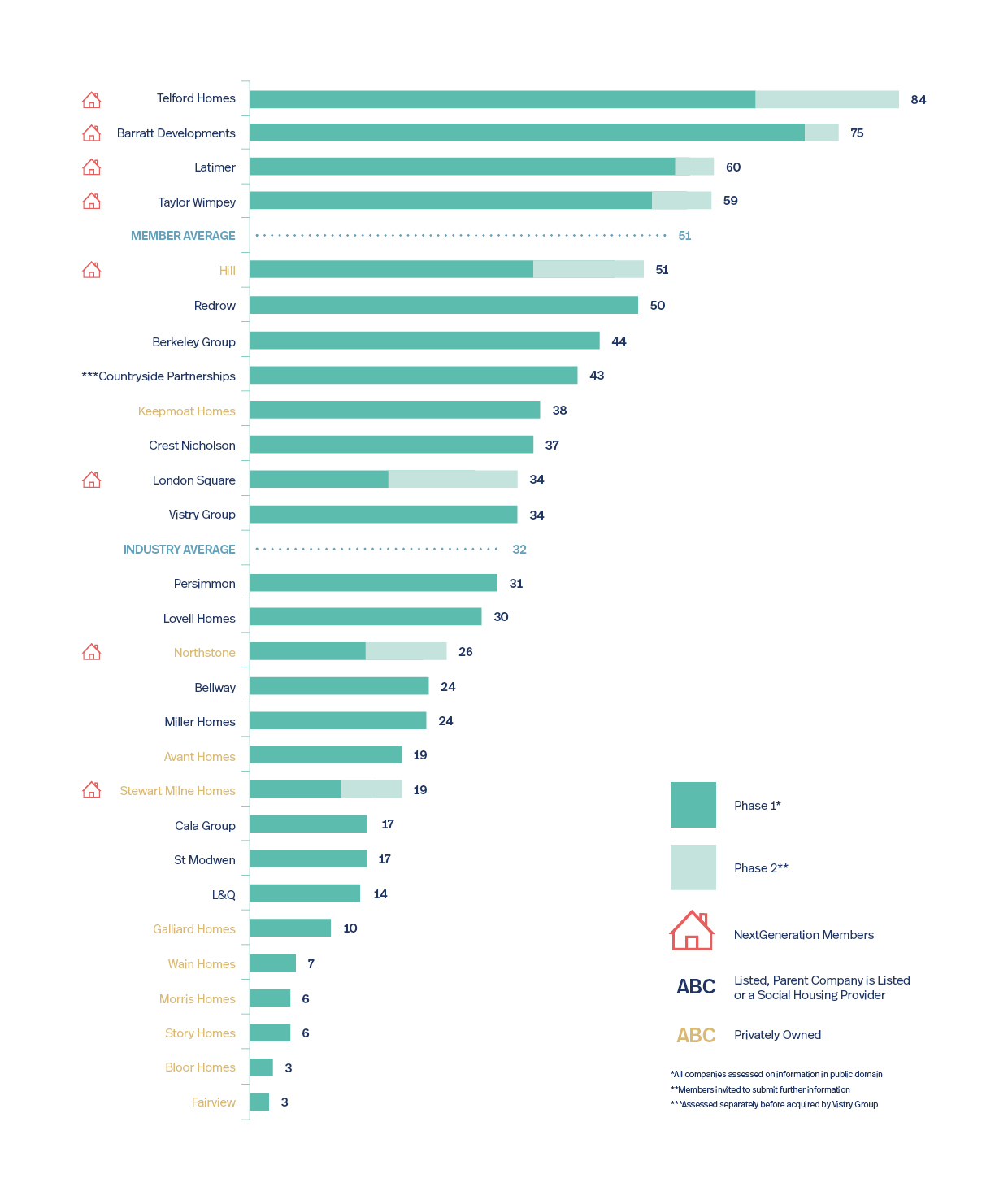As the issue of biodiversity decline rapidly gains prominence in the policy, customer and financial worlds, the NextGeneration launch event took place on 8th December to announce this year’s benchmark results.
The event, hosted both in person at JLL’s Central London office and streamed online, was hosted by JLL’s UK Head of Sustainability Emma Hoskyn, who guided discussions on the theme of nature and biodiversity in the homebuilding industry. An inspiring keynote speech from Dr Gemma Jerome, Director at Building with Nature (BwN), provided an enlightening insight into how green infrastructure can support the delivery of nature and biodiversity and optimise benefits for people, business and the environment.
Following this, the 2022 Benchmark results were announced with awards presented to the top performing homebuilders. The event concluded with a panel discussion between leaders within this space, with conversations circling around how to maximise nature and biodiversity in housing developments and the benefits in doing so, alongside achieving Biodiversity Net Gain (BNG) ahead of requirements set to come into force in England in 2023. Alongside Gemma, John O’Dwyer, Head of Sustainability at Telford Homes and Lisa Palframan, Senior Technical Manager at Homes England, offered their insights on the topic.
NextGeneration 2022 Sustainability Benchmark Results
These results represent the first of the three-year criteria cycle, having been refreshed this year to remain stretching and pertinent to the ever-evolving sustainability sector. Telford Homes are the top ranked homebuilder of the NextGeneration Benchmark for the third year in the row, demonstrating their unwavering commitment to sustainability. Barratt Developments displayed another year of strong performance, retaining their position of second place and winning the Crystal Award for the highest Phase 1 score. Meanwhile Latimer came in third, having increased their score by a commendable 19 points since last year, whilst Taylor Wimpey placed fourth. Hill Group also impressed at 5th place, being the highest ranked privately owned homebuilder.
John O’Dwyer, Head of Sustainability at Telford Homes states: “In a year where the world has seen unprecedented turmoil, it is now more important than ever to transition towards a low carbon economy, with the built environment delivering genuinely sustainable buildings. At Telford Homes, we are committed to accomplishing our 2030 net zero roadmap ambitions and continue to review our Building a Living Legacy Sustainability strategy to address evolving policy and societal challenges. Accordingly, we are delighted that our effort in this space continue to be recognised by the NextGeneration Sustainability Benchmark.”
Companies included in the Benchmark have an annual housing turnover of £25,946m, cover 90,128 new homes completed in the past year and directly employ 43,291 people. The Benchmark continues to see a broad range of performance, demonstrating the significant disparity in transparency, action and impact within the industry. NextGeneration Benchmark Members lead the way, with an average score nearly a third greater than the overall industry average (51 to 31) and making up four of the five highest scoring homebuilders in Phase 1. This demonstrates both the benefits of expert advice and peer learning awarded through Benchmark membership and the greater disclosure of sustainability information by Members.
The launch event also marked the release of the 2022 NextGeneration report, now available to download from the Reports section of the NextGeneration website. In line with the event, the focus of this year’s report is on nature and biodiversity in the homebuilding industry. The first section sets out the key definitions surrounding nature that homebuilders should be aware of, along with the policy landscape now and in the near future. Next, the benefits of integrating nature into residential projects and going beyond regulatory requirements are explored, covering the co-benefits of producing better places to live that also create financial value. The final section outlines the measures that can be taken to ensure a holistic approach in integrating nature-based solutions, including pioneering case studies to demonstrate the benefits available to those who rise to the global challenge of combatting biodiversity decline.
If you have any further questions about NextGeneration, or would like more information on Membership, please reach out to daniel.jones@jll.com.


